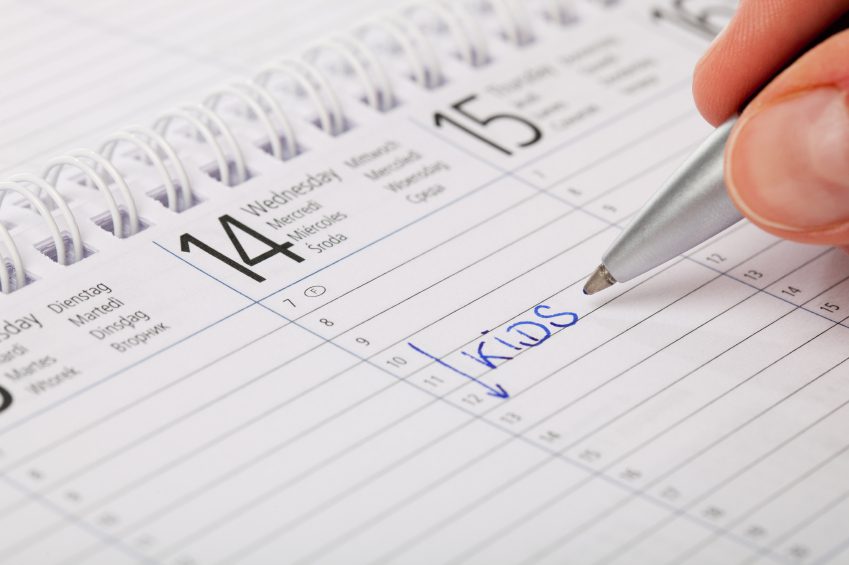Failure To Launch and the Disorganized Teenager – Could a Life Coach Help?

Posted in: Teenagers, Young Adults
Topics: Behavioral Issues, Child + Adolescent Development
The term “failure to launch” is used in medicine and education to describe a young person who is unsuccessful in taking the daily academic and personal steps needed to become a responsible, productive and ultimately successful student and adult. As an educational consultant at McMillan, Howland & Spence, Boston’s oldest educational consulting firm, I work with a number of teenagers who are “struggling to launch.” Their trajectory from junior high onward is marked with significant lapses in their ability to start and complete schoolwork and fulfill their daily responsibilities. In general, these students are bright, engaging and earnest. They want to do well and are dismayed at their “forgetfulness” and ineffectiveness in how they start, organize and complete academic assignments.
Let’s take Jonathan, a typical student of mine who’s a freshman at a well-known university in Boston.
Prior to being accepted to college, Jonathan attended a boarding school in rural New Hampshire. He was a “B-” student, and was told over the years that he wasn’t putting effort into his work. In the evenings, a teacher made sure he was focused on his assignments. Even with extra help, the amount of schoolwork Jonathan was required to do overwhelmed him. He would forget to turn in papers, wait until late in the evening to start his reading assignments and complain that what he “thought would be on the test” was different than the actual exam. Though his IQ was quite high, his “B-s” were largely a product of his disorganized approach to this schoolwork. Like many teenagers we see, especially young males, the cognitive tasks required to prioritize, balance and finish academic and other daily tasks develop slowly, sometimes well into one’s mid-20s.
After arriving at college, Jonathan continued to struggle in school, and by November of his freshman year he wanted to drop out. The daily tasks required to be a successful college student were hard for him. He was late to register for his classes, he rarely completed his papers on time and he was constantly unprepared for his tests and quizzes. He was repeating the same organizational pattern from high school and had no idea how to stop it. Unlike in high school, he was on his own now with no adults to guide him along.
To help Jonathan, I suggested he hire an educational “life coach.” Like organizational coaches, these coaches help older students plan out and complete daily tasks. They can charge from $75 an hour upward, depending on their training and experience, which may include a degree in counseling, social work or psychology. The life coach directs the student on how to break down their day into manageable and actionable steps. A daily sheet can be developed that allows students to view their day in half-hour segments. In general, highly-productive people tend to maximize what can be accomplished in a half-hour.
Through the exercise of breaking down activities into smaller time segments, students develop a clearer sense of how to prioritize, focus, initiate, transition and complete their daily responsibilities. A skilled life coach can boost self-confidence in older students by explicitly breaking down each task into smaller segments. The students thus develop more “mindfulness” about their day—an important ingredient to becoming a mature adult.
Jonathan met with his coach twice a week for three months. The coach helped him register for his classes, and discussed course scheduling (e.g., class times, length, amount of work expected, professor expectations). The coach also helped him estimate the time required to complete nightly schoolwork, using time sheets for each day’s assignments. Many students tend to underestimate how long it takes to read a chapter; in this case, the coach asked that Jonathan read 5-10 pages in an assigned book while timing himself. This time could then be used as an index when estimating how long reading assignments would take him.
Jonathan and his coach focused on how to create awareness of how and when the first, second and third key items of the day should be completed. Homework planning is particularly difficult for these students. As stated, they tend to underestimate how long it takes to read a book chapter, or even how to write a paper. The process of writing a paper—arguably one of the most complex academic cognitive tasks—is usually done in three or four stages. It requires highly focused attention, rapid retrieval of grammar rules, correct syntax flow, selective vocabulary retrieval and fine motor skills. Disorganized students tend to write an initial draft and then add or edit information in a final, second draft. A life coach with academic training can help them understand what each step consists of, and how to better pace this complex process.
Today, Jonathan is still in college and settling in. He decided to enroll in four courses (rather than five) for the spring semester. This will allow him to better manage his workload while continuing to learn new strategies for balancing his assignments. He uses specific daily reminders and time sheets, and also reviews a detailed checklist each morning for his action steps. His confidence is clearly up; he is on his way to becoming a mature adult.
Let’s also look at Lara, a college freshman, who has struggled her entire life with serious attentional issues.
While in high school, Lara received 700s on her SATs, yet consistently failed to get to class on time and rarely completed longer assignments. Even with impressive test scores, her college choices were limited due to her lackluster grades. Once in college and no longer having the prodding of her parents to complete her schoolwork, she found herself struggling. She was late to classes and missed working on many important assignments. Within four short months, Lara was in a vicious cycle, spending more time out drinking with friends, and far less time on her college work. As her grades dropped, so did her self-esteem. Her parents, alarmed by her mid-term grades, hired a life coach.
Mature students are equipped to resist acting on what they want to do “in the moment.” Students with organizational or attentional weaknesses are far less capable, and need explicit and specific help on how to organize their day and resist “time draining” activities such as watching TV and socializing excessively. A good life coach will focus and motivate students, helping them understand the daily “time and opportunity loss” from poor organizational planning.
In Lara’s case, the process took time. Over the years, Lara had developed a complex sense of self: if she was so smart, she wondered, why was remembering to hand in a paper so hard? Like other students with these struggles, she saw herself as flawed. What should have been easy tasks were instead sources of embarrassment and frustration for her. Lara’s parents were confused themselves as to what to do. Hiring a professional time management person who understood older students with organizational and attentional deficits seemed to be the answer.
The coach walked through Lara’s daily routines with her and had her discuss, in detail, the steps needed to accomplish each task. For example, even scheduling a hair cut can be fraught with organizational problems. Below is an example of the details discussed to help Lara organize this particular event:
- Time and date of appointment?
- Is it in a calendar?
- How long will the appointment take?
- Does the salon accept credit cards?
- How long will it take to get to and from the appointment?
- How will this impact your classes, homework and other commitments?
Simple tasks like buying, cooking and eating food are also part of a college student’s life, and can therefore also be underestimated in terms of time commitment. Over four months, Lara’s coach, who met with her in-person and communicated via Skype and text messages, helped her realize the importance of planning and being more responsible for her commitments. Even setting the clock earlier became a serious activity for her. The coach’s support profoundly impacted her life, with her ending her freshman year with a 3.6 GPA. She was becoming the student she was meant to be.
Years ago, hiring a life coach for a student was a laughable concept. However, the amount of schoolwork that students are expected to complete has increased three-fold over the past 25 years, especially in top school districts and at rigorous colleges. As educational consultants, our firm sees on a daily basis how the increased workload can impact students with weaker organizational styles. The added workload has put a noticeable strain on students, particularly boys, whose abilities to organize, remain focused, transition and complete tasks doesn’t fully develop until their mid-20s. However, daily failures in these critical “operational” skills can amount to subtle yet damaging psychological blows to these students’ self-esteem. The consequence is poorer-than-expected academic performance, which, as we know, impacts work prospects later in life.
Jonathan’s and Lara’s stories are happening to young students across the country. Ask any high school teacher or guidance counselor and they will tell you: students are struggling to balance the demands of three to four hours of nightly schoolwork with their numerous extracurricular activities—while also being enticed by a growing number of social media outlets competing for their attention.
Not every student can afford a life coach, and fortunately, more reasonably-priced resources are available. The Research Institute for Learning and Development in Lexington, Massachusetts has written a book Executive Function: From Theory to Practice that outlines in detail how to help students and young adults achieve daily goals with greater ease and confidence. Parents and teachers I know have used this book with great success.
As a former academic support head, I feel it’s important for parents to take a hard look at the amount of work being asked of teenagers by adults who may forget what it’s like to be a teenager. Teachers need to reassess student workloads starting in the late elementary school years, which is when these issues begin to arise. Additionally, public education needs to be mindful of the trajectory of natural maturation seen in most students, especially young boys. Most importantly, at school and at home, adults should start teaching children early on how to view their day in a more mindful way.
For example, parents should discuss with their children the steps needed to complete tasks, such as buying a gift for a birthday party, baking a cake or planning a trip. Though simple to adults, these tasks require sophisticated planning and prioritization skills. Breaking down each task, how and when it will be completed and how long it might take to finish, helps a child envision tasks in multiple parts, thus providing a better understanding of the passage of time. Using an analog clock (versus a digital display) in the kitchen or classroom can also help children view the passage of time and plan more mindfully.
Teachers should start in fifth or sixth grade helping students think about how to manage their schoolwork throughout their evening. As all students read with different levels of ease and comprehension, teachers should time students and estimate how long it takes for them to read a page or chapter. They can then use this metric to help students better allocate the right amount of time for each night’s reading assignment.
Our consulting team frequently hears parents remark about how school has “changed since they were in school.” Many of us had more time for play, reflection and family. We need to be more realistic about what today’s students can accomplish, and be more mindful ourselves about how to support each student as he or she grows from child to young adult.


 Share
Share Tweet
Tweet





